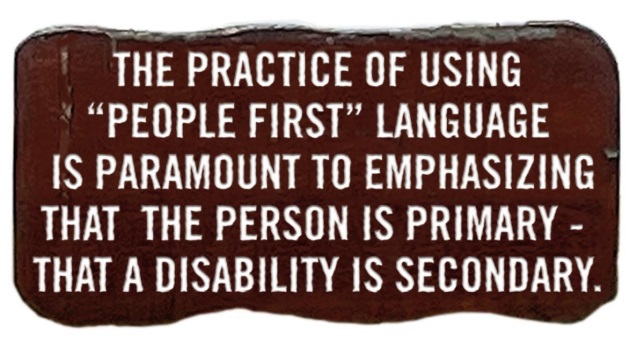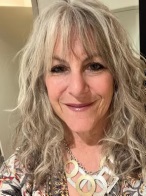- Disinterested . . . . . . . .Not interested
- Dishonest . . . . . . . . . . .Not honest
- Disconnected . . . . . . . .Not connected
- Disloyal . . . . . . . . . . . . .Not loyal
- Displeased . . . . . . . . . . .Not pleased
- Disassembled . . . . . . . .Not assembled
- Disabled . . . . . . . . . . . .WAIT!
The English language is filled with words containing the prefix “dis,” meaning “not” – or simply negating its root word. We have employed the term “disabled” in parking spaces, movie theaters, on bathroom doors, seats on buses and trains, in voting booths, and places of worship among other public locales.
It was on a trip to Uganda that our guide, Ham, pulled into the parking lot of our lodge, and there it was!
Prominently situated was a sign that read "Reserved for Differently Abled." Like an arrow to my heart, I realized that we had been "dissing" a segment of our population by using language that feels like it emphasizes limitations rather than abilities.
It occurred to me that, if I suddenly required the use of a wheelchair or crutches, people who use assistive measures on an ongoing basis would actually be MORE able and adept at these skills than I would be. Within their realm, between them and me, who would have more constraints?

THE PRACTICE OF USING "PEOPLE FIRST" LANGUAGE IS PARAMOUNT TO EMPHASIZING THAT THE PERSON IS PRIMARY -THAT A DISABILITY IS SECONDARY.
Posting that sign exemplifies the importance of honoring ALL people and respecting, as well as underscoring, capabilities rather than highlighting the "dis," the "not," or the "can't."
A disability, or other "difference" that might veer from society's perception of "typical," is nothing that should be hidden, squelched, or unacknowledged. In fact, to notice these variations among people is akin to saying, "I see you. ALL of you," while still adhering to the idea that often there are more things they CAN do than they cannot.
A person can HAVE a disability, but actually have lots of ability in other areas. The individual just may not be "able" in a certain area, or might need to execute daily tasks or a specific task, differently.
The practice of using "people first" language is paramount to emphasizing that the person is primary – that a disability is secondary.
Also, one may have an invisible disability, outwardly undetectable, but still require access to designated parking places or modified seating. Neither judgement, criticism, nor skepticism should be thrust upon these individuals by others, particularly those who undertake the role of self-appointed parking lot or seating "tsars." Just because one cannot see something does not mean that it doesn't exist.
It would be great to see everyone be kind, inclusive, less harsh with words and judgements, and put more effort in seeing what people CAN do, rather than emphasizing potential restrictions. It would be a better world if everyone could embrace differences and allow themselves to learn from those who thrive, despite the challenges that they may face.
In addition to incorporating “people first” wording (Example: “the MAN who uses a wheelchair” rather than “the wheelchair-bound man”), I am now committed to refraining from using the descriptor “disabled” in my vernacular in favor of the more accurate, inclusive phrase “Differently Abled.”
One tiny pebble can impact a large body of water, sending beautiful ripples through its once sedentary surface. My goal is to be that small rock and invite others to join me to effect a change that demonstrates empathy and sensitivity towards others, making sure we acknowledge, through both language and actions, that we choose to see people's abilities and support the necessary accommodations for those who might require them. •
ABOUT THE AUTHOR:

Sheri Block Glantz, M.Ed., is a 5-term elected official in her community, a lifelong writer, and the author of G.I.F.T.E.D. Love, FLY!, and "The Sunny Side of Life" blog. Her perspective on life: There is always a silver lining. There is no such thing as "can't." People, circumstances, and challenges are placed in our paths for reasons we shall eventually come to understand. Inspired by life, love, hope, and the continued quest to find meaning and authenticity in her world, she writes from the heart and is thrilled to share her insights with the public.